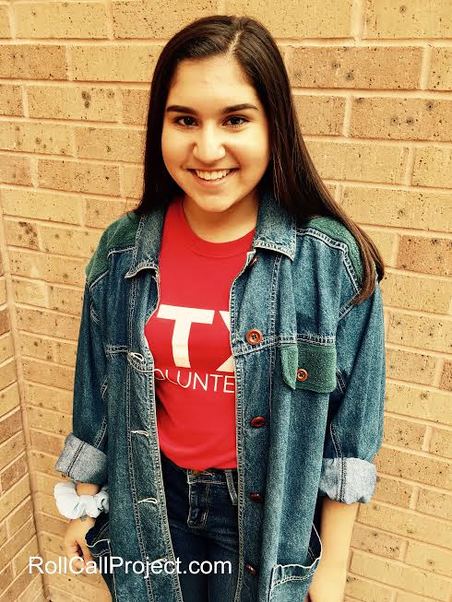 High School Student Hispanic + White Female Q: What do you have in common with your teachers? A: Although the Rio Grande Valley has a population of 1.5 Million people, the world I grew up in was pretty small. From ages 6 to 11, the one thing I had in common with my teachers was my gender. Having strong female role models during some of the most formative years of my life has shaped who I am today. They understood the stigma surrounding “bossy girls” before I even knew what connotation the word “bossy” held. They nurtured my leadership and drive instead of shutting down my “bossiness”. I never saw this as anything of importance until I got to middle school where the first male teacher I ever had pointed to me as I was planning our group's next step and said, “Well, you’re quite the bossy one. Aren’t you?” I could tell by his voice that it was not a compliment. My whole life, my leadership had always been accepted if not encouraged, but this man who did not understand why young girls should be encouraged in this way, discouraged my initiative and drive for the rest of the year. Throughout my early school years, I was exposed to a lot of diversity. If my teachers were not Hispanic, they were Colombian or Irish or even African American. This allowed me to grow up in a world that was accepting of differences and taught me how to deal with people who didn't always look like me. Although this was a great skill to develop, it could never match what I learned when I finally had a teacher that looked like me. In my first year of High School, I really struggled finding my “Latinx Identity”. I wanted to embrace my culture but I didn't speak Spanish and along with the fact that I looked white, it made it hard to feel like I could really check that Hispanic box. Sophomore year was when I finally had a teacher who was like me--dark haired, had a lighter complexion, and didn't speak Spanish, but still EMBRACED a Latin Identity. For so long, I felt rejected by a world I didn't even know and this gave me hope of one day belonging. She taught me that when we exist in two worlds, we must find a way to make our own and even when you feel like you do not belong entirely to one culture, it is still yours to claim. Growing up around teachers who shared my race, identity and gender made me not only feel represented in the world, but it made me feel understood and as a young girl, that was all I could ask for. Q: Does it matter that students and teachers have things in common? A: One of my favorite quotes from Gloria Anzaldúa says, “The US Mexican Border es una herida abierta where the third world grates against the first and bleeds. And before a scab forms it hemorrhages again, the lifeblood of two worlds merging to form a third country - a border culture.” This border culture is a mix of English and Spanish. It is Mexican ancestry with the American mainstream. It is existing in two different worlds, but never belonging to either. It wasn't until my freshman year that I had the first teacher who introduced to a new concept : Pride of Place. This man, Mr.Ozuna, walked into our class on the first day of school and said “I went to Yale for college and a lot of people ask me, ‘if you went to Yale, why would you come back and teach at Memorial High School?’ The question I ask you is why don’t you all deserve to have a teacher that was educated at Yale?”. This was a very defining moment in my life. I realized that the problem in our community wasnt that we didn't want opportunities, but that we felt we didn't deserve them. This mentorship was based on more than the fact that he looked like me with his dark hair and hispanic features (which I shared with most of my teachers all my life), but that he understood our “border culture” and taught me how I could use my voice to help people understand our community better. When you look up the Rio Grande Valley, 9 times out of 10 you will find some negative stereotype or false narrative perpetuated by people who do not know our community like we do. We, as a community, are constantly underestimated and misunderstood which is a hard concept to grasp for a young girl growing up here. Growing up, I constantly had to listen to people say things like “there’s no opportunities here” or, “I can’t wait to leave the Valley”. For the first 14 years of my life, I had never been exposed to any teacher or anyone who really loved this place. Being so young, it was hard living in a world that taught me to not be proud of where I come from. Simply having this culture in common made me not only want more for my community, but made me feel like we deserve more. It allowed me to break out of the stigma that I couldn't be successful here and start making my own success. For me, having things in common with my teachers is important because I no longer feel like I am alone. And once you feel like you have a community of people supporting you, you are unstoppable. Sydney is the founder of @thergvmatters. Her #successwithoutborders interview series (podcast coming soon!) encourages youth involvement in her community and aims to inspires people to be proud of their Rio Grande Valley roots. Join in her activism and connect with her on Twitter @sydramon. Photo (c) 2017 Kristin Leong
0 Comments
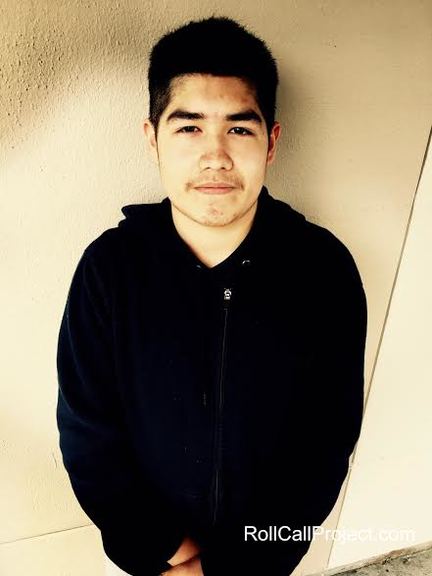 High School Student Hispanic Male Will be the first in his family to go to college Q: What do you have in common with your teachers? A: To me, there are still a lot of things we don't know about our teachers. As students, we go through a lot. We experience things that are either good or bad. We have teachers and our school staff that talk to us, who tell us that everything is gonna be alright and let us know that they are there for us. It is only at the time of disbelief and grief where we share that connection. Most of them may be white and there may be more female than male teachers, but that doesn't matter to me. The connection that I have to my teachers is something else. I also see it with other students as well. We are a small community where we all go to learn, to laugh, to share, and to express ourselves. Teachers are really there to help us no matter how troubled we are, whether we're stuck on a problem or we're going through some troubling times, they are there for us. They laugh and even share some stuff that you never even knew you had in common with. I've also seen some teachers experience the same things that we do too. I see them talk about their personal lives, hear them make jokes. I've also seen some of my teachers at their lowest point. We as a society treat our teachers as machines. We go in, sit down, learn, and move on to the next. But that is not true. We don't truly see what our teachers are. I am truly grateful for the community that I am a part of. Teachers' experiences and knowing the things that we have or may not have in common has helped me do things that I may never have thought I was capable of. Like expressing myself and be able to share my story. Q: Does it matter that students and teachers have things in common? A: I know that it may be hard for others to express themselves and I understand. But all I want for people to understand is that there a lot of things we don't know about our teachers, and it is difficult to make a connection with someone you may not know a lot about. To me, it does matter that students and teachers have something in common. It builds that personal connection. And even though you may or may not have something in common with your teachers, it builds that sense of communication and trust. No matter who we or they are. No matter what race, gender, sexual orientation, or even who you are truly. Having that connection turns a school into a community and makes our teachers and students into a family, no matter if you have something in common or not. Connect with Alexis on Twitter @ASVideoGamer. Photo (c) 2017 Kristin Leong 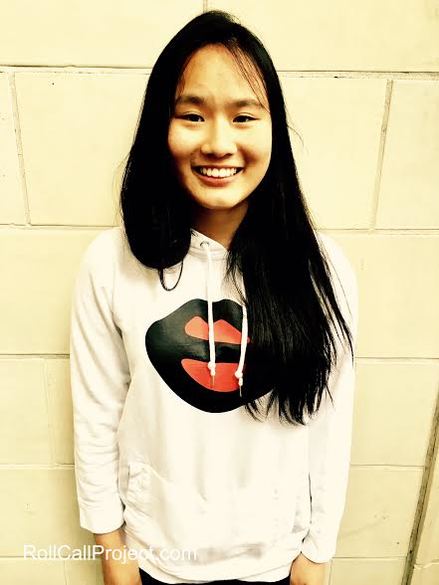 High School Student Chinese Immigrant Female Will be the first in her family to go to college Q: What do you have in common with your teachers? A: I really couldn't think of anything off of the top of my head. This question took way longer than it should have. My math tutor is a huge nerd, we talk about Game of Thrones all the time. Then somehow I recommended a TV show on Netflix to my biology teacher, so I guess that's that. All my teachers are female? Does that even count? I think after I began developing a passion for education, I started relating to some teachers more because I can see their passion and how they care for students. This is a really hard question. Q: Does it matter that students and teachers have things in common? A: Most parents from my ethnic background would say it doesn't matter. As long as the students learn the appropriate materials and are well prepared for standardized tests, it doesn't matter if the teacher is approachable or not. But most students would agree it does matter. When the teacher cracks that one joke, references that one TV show or movie we like, I think we all suddenly become fond of them. We become willing to listen. I think we all learn better when we like the teacher. We grow to like the class, the the subject, then other subjects in that field. We become less scared to ask seemingly stupid questions, and we begin to learn at a much more productive pace. I remember when I first moved to the US in third grade, I could barely speak any English. There was a counselor who spoke Chinese. I suddenly felt so much better, and just a little bit less lonely. And that made learning English and becoming part of the community that much easier. BUT then again, we seem to be influenced by teachers that have no commonality with us. When I see my biology teacher ramble on and on about how amazing biology is, I get somewhat touched. And I start listening because the examples she gives us are so profound that it made a STEM class interesting. When my usually strict algebra teacher told the class we could talk to her and push the homework due dates back if we wanted to priotize AP tests instead (she literally said "don't do your math homework. This is not important. AP tests are important"), I became somewhat touched. And I started listening to her lectures because I knew she is a good teacher, and she really cares. So I guess what I'm trying to say is, similarities matter. It forms instant bonds between students and teachers. But even if we couldn't form that bond, students will evetually see a good teacher's passion, and grow to respect them, to open up to them. I don't know though, respect is respect, but trust is another thing. It definitly helps if the person we're supposed to open up to has had similar experiences. We'll know they understand that way. Photo (c) 2017 Kristin Leong 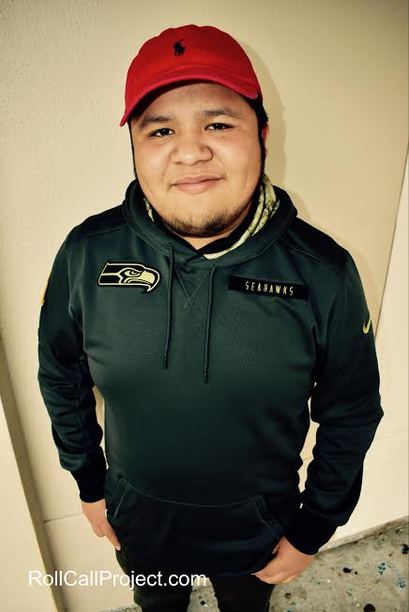 High School Student Hispanic Straight Male Will be the first in his family to graduate from high school Q: What do you have in common with your teachers? A: I think I do have stuff in common with some of my teachers because they tell us their life experiences and I can relate to them. But then there's some teachers that I can't relate to because of their race or their gender because I'm going through different things in life than what they went through. They try helping out, but it's a better help if the person that is trying to help knows what you're going through and knows how you're feeling because they were there at one point. Q: Does it matter that students and teachers have things in common? A: I think it does matter if you and your teachers have things in common. If students and teachers had things in common if you need someone to talk to they are there for you, they know what's going on with you, you have more trust in them, and you can feel like you can open up with them and share your feelings. Gustavo hopes to attend Seattle Pacific University or Washington State University after he graduates. He's interested in studying automotive technology, video production, and photography. Photo (c) 2017 Kristin Leong 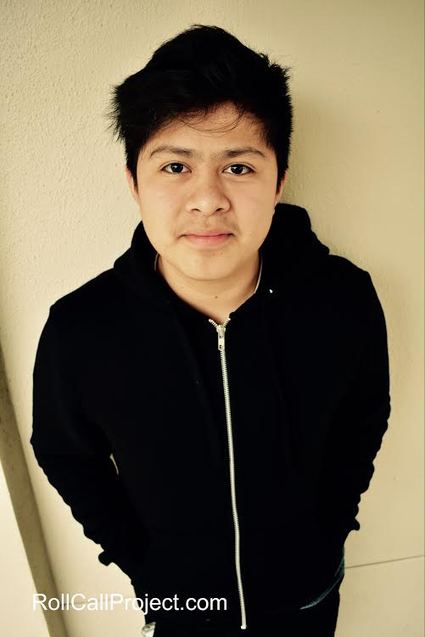 High School Student Hispanic Straight Male Will be the first in his family to graduate from college Q: What do you have in common with your teachers? A: Growing up, I never had anything in common with my teachers. Being a Mexican-American is tough, especially because a lot of us come from families who immigrated to the U.S. We always had to do the extra set of work and help our parents at their work, and it was that struggle that your teachers didn't understand. It wasn’t until I reached high school, for the first time I had a teacher who was Mexican. As soon as he introduced himself to me I knew we were going to get along. Then we began to share the common problems that Mexican children have, the foods that we liked and we even shared the same taste in music, and that's what made me trust him and rely on him whenever I had a question or a problem and that’s when I realized that when you share something in common with someone, especially share the same race, you don’t feel alone, you don't feel outnumbered, you feel relieved that someone finally understands you and your struggles. Q: Does it matter that students and teachers have things in common? A: When sharing a common interest, especially cultural background, it makes you trust that person, so when students and teachers share the same struggle or same taste in music it helps create a connection and that connection turns into trust and trust turns into a friendship. That said, I believe it's beautiful that teachers and students share common interests, but does it matter? No, because although there's no commonality, there is that respect that makes you interact with that person. Roberto plans to study science and engineering in college and start his own software company that will help make sure all children have access to computers. To hear more about Roberto's journey, watch this video of Kristin Leong's opening talk for Town Hall Seattle's #EducationSoWhite event. Photo (c) 2017 Kristin Leong 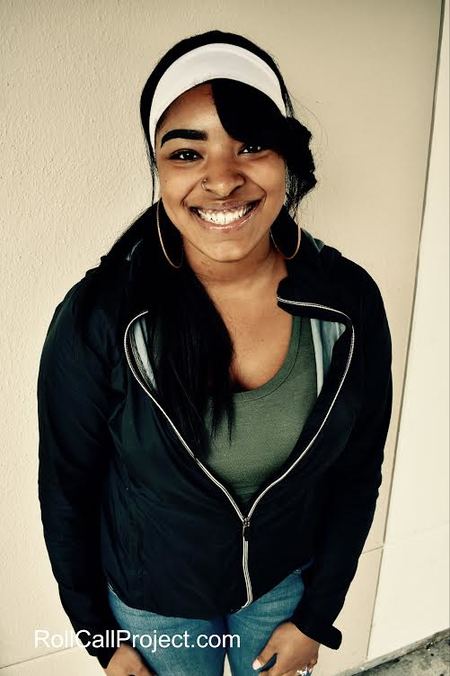 High School Student Black Heterosexual Female Q: What do you have in common with your teachers? A: Appearance wise I don't have much in common with my teachers. Majority of them aren't of color but half of them are women so we do relate there. Something that I do have in common with my teachers though is probably a shared mentality towards work ethic. I naturally have a mature mindset so it is easy for me to relate to my teachers. For example, it would be easier for me to talk to my teachers about the meaning of life and working after high school rather than my peers because my teachers and I just have a common perspective on things. Q: Does it matter that students and teachers have things in common? A: Absolutely! There are so many benefits for not only the students but for the teachers as well. When students and teachers have things in common, teachers can understand why a student is choosing their actions. For students, it's important to have things in common with the teachers because you can relate about struggles and stereotypes, and it just creates a good feeling to know that someone can relate to you about certain things. Photo (c) 2017 Kristin Leong 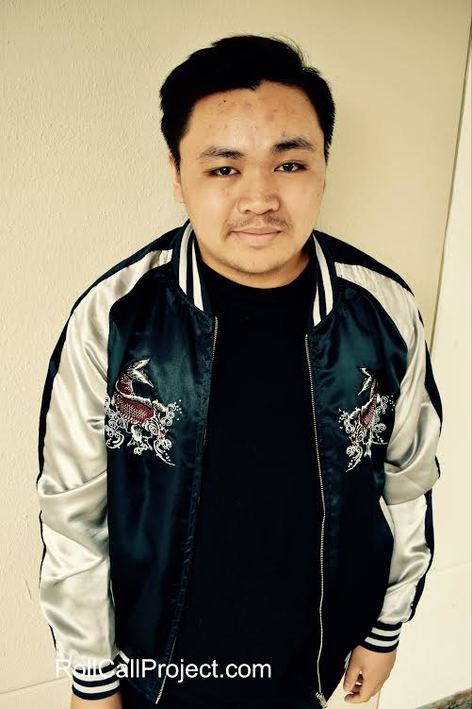 High School Student Filipino Middle Child Male Q: What do you have in common with your teachers? A: I have never been a talker. I usually just listen to what my teachers have to say and then do my work. But every now and then my teachers and I have a small chit chat in the middle of class. Just yesterday me and my math teacher had a conversation about how weird and funny our pets are. Since I'm not a big talker I mostly learn about my teachers through my peers. They tell me about another teacher being a 'straight up savage' and we laugh and joke about it. I've also learned that some of the teachers like and play the same video games me and my friends like to play! I feel like I really started to connect with my teachers in high school. In elementary school and middle school I felt I never got to really know my teachers--not because they were mostly White Women and I am a Filipino Male--but because I didn't get to know them as a person; a human being. I feel as if I lost that opportunity to get to know them and for them to get to know me. But it's hard to get to know a person when all the talk is focused on what's going in our textbooks or about a test that's going to be taken the next week or at the end of the school year. There is one teacher that I will never forget from elementary school (especially with a name like hers how can you forget!). Her name was Ms.Star. She was my 4th grade teacher. At the time I was just starting to love art! I remember I would draw all the posters on my cousin's walls and she would show me all the drawings she drew. She inspired me to also start drawing and I fell in love with it! Ms.Starr loved arts and crafts a lot, unlike the other teachers. She was really into making handwritten and custom-made cards. She would tell us stories of how her and her friends would meet up and create together as well show us her cards in class. I felt like I could understand her love for making those cards and I could connect with her on that personal level. Although I have never shared the same culture or race with my teachers I feel like that it doesn't matter because all of my teachers have always treated me with respect despite our race and culture differences. Being able to say that must be very lucky for me compared to what other kids across the country and around the world have to go through. Especially for one of my friends who I talk to who lives across the country. Her relationship with her teachers aren't good and it doesn’t only affect her in school but also at home as well. I wish I could say the same for her. Q: Does it matter that students and teachers have things in common? A: I strongly believe that it is important for students and teachers to have things in common. Getting to know your students and teachers is not only the first step to becoming a better learner but also creating good connections. Because at the end of the day (and it's been said many times and sometimes we forget) we are all human. It doesn’t matter if the setting is within classroom walls or it's out in the grocery store, we are all still human no matter what. And being human is being able to communicate and communication plays a huge role in education as well as the path of life. Getting to know your teachers creates the trust needed between a student and teacher and vice versa. If you get to know your teacher as if they were a friend you start to respect them more and become more engaged in topics they bring in class. I believe that this special bond is important in order to keep students engaged and interested in the curriculum they are learning about. It's part of the teacher's job to connect with the students. It's their job to keep our ideas running and to show us that our thoughts and dreams are not impossible to achieve! But it's also their job to be second parents for the student, because students spend most of the day with their teachers rather than their parents, especially if both of the parents work long hours. The teacher should be someone who students can talk to and trust if they don’t feel okay at home or at school. And as of right now, in the world we live in today it's really important for someone to be there for them. Photo (c) 2017 Kristin Leong 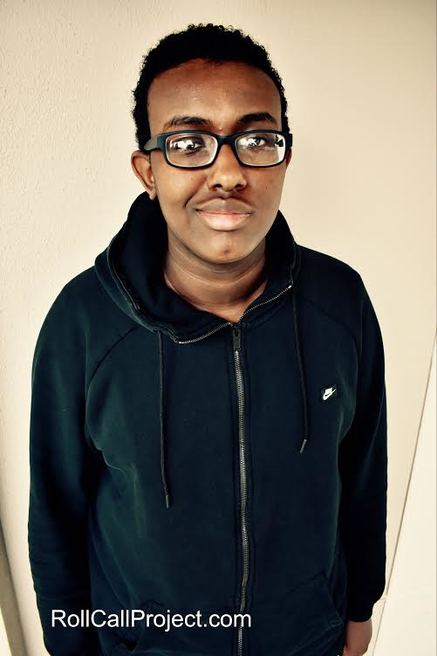 High School Student Somali Straight Male Q: What do you have in common with your teachers? A: As an African and a Muslim, I don't have anything in common with my teachers. Even though we might not have anything in common, we still respect each other and not let that divide us. Q: Does it matter that students and teachers have things in common? A: Yes, it does matter that students have things in common with their teachers because they can relate to their teachers and open up with them more. Photo (c) 2017 Kristin Leong 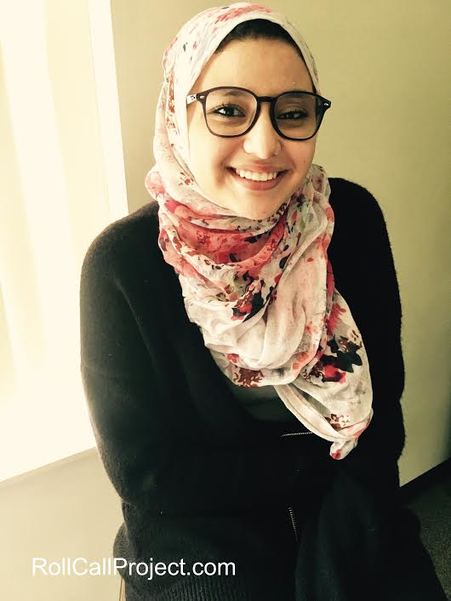 High School Student Middle Eastern Muslim Heterosexual Female Q: What do you have in common with your teachers? A: If I am being completely honest, the only thing I have in common with my teachers is that they are mostly female – that is it. I have never encountered a Middle Eastern or even a Muslim teacher in the time that I have been in school. However, with the recent politics it is very comforting to know that many of my teachers share some of my same beliefs or at least support me in expressing my own ideas and opinions. After the inauguration this past January and after all the political protests and sadly the many violent acts against specific groups of people it was very easy to feel alone. However, I was pleasantly surprised when I came to school and almost all of my teachers and all of the office staff were wearing pins with different messages that preached equality, freedom of expression, and safety. Although I do not have a very direct commonality with my teachers, it is comforting to know that they are so accepting of who I am and whom I represent. Q: Does it matter that students and teachers have things in common? A: I think it is so incredibly important for students and teachers to have things in common because it brings them closer together. Even though it is not commonly viewed this way, teachers and students have a very special and intimate relationship. Teachers help students build their character, their interests, and ultimately their future. The exchange of information that happens between a student and a teacher is so valuable and so important. However, if a student does not feel like they can trust or feel close to their teacher then it is very likely that they will not absorb the material. A teacher’s job is not to stand in front of a class and lecture their students. A teacher’s job is to connect with students and help them interpret the information and apply it to their own lives. In addition, when it comes to education, communication is one of the most important factors. If the student does not feel like they have anything in common with their teachers then that line of communication can very quickly be closed. If a student has something going on at home that prohibits them from finishing their homework, or if they are going through certain mental health issues, they need to have comfort in knowing that their teacher is someone they can come and talk to. I have seen multiple situations where a student is too afraid to talk to their teacher and ask for help because they feel like they will not understand. Having something in common with a teacher makes them less scary and more approachable. They no longer become a daunting adult, but rather a friend and someone that can easily be approached. Recently, my mosque was burned down in a very unfortunate case of arson. Coming to school and having multiple teachers ask me if I was okay, if it was the mosque I attended, and if there was anything I needed really made me feel like they cared about me and what was happening in my life both inside and outside of the classroom. I am thankful to have had amazing teachers in all my life in school and I really do believe it is because I was able to build relationships with them based on commonalities and trust. 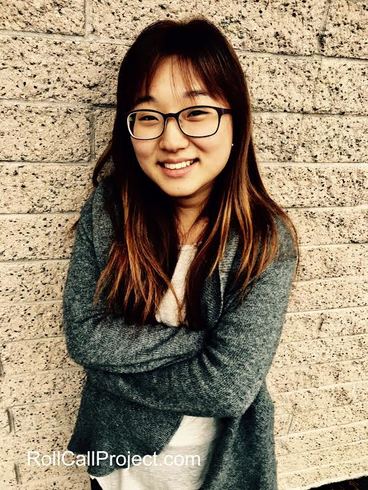 High School Student Korean + American Female First Generation American First Child Q: What do you have in common with your teachers? A: What I have in common with my teachers is a sense of individuality. Of passion. In fact, my favorite teachers are the ones who say sarcastically and endearingly, "Oh honey, if I was in it for the money, I would not be teaching." It goes unnoticed by students often, and our relationships with teachers often become a routine one of gives homework, does homework; teaches lesson, asks question; writes test, takes test. But, teachers go into teaching because they were so passionate and so in love with their subject that they chose to dedicate their entire lives to sharing their source of happiness with the next generation. And that's pretty cool because I want my life to be one driven by passion, an excitement for living, and the desire to live nobly and selflessly for a cause too. I have teachers who, like me, love to be active in their community and are constantly buzzing with activity. It feels like as the student, I am simultaneously being inspired by their invigoration with life, AND inspiring them in the same way as well! It feels nice to know that there are adults in my life who are just as active and excited about their community as I am. It feels reassuring to know that even when I'm in the workforce, like them, I'll be able to maintain my passions and actively live life. Q: Does it matter that students and teachers have things in common? A: As with any human relationship, similarities between students and teachers do make it easier to develop personal bonds. It's like a support system. We are at school every day, and we see our teachers every day. Teachers are the easiest people to access as a resource, and when we have similarities with these adults who we can look up to, it just feels nice. With me, I had wanted so badly to do something for the undocumented migrant workers that I had volunteered with every summer, but many adults in my life told me, "It's a very noble thought but you're just a high schooler. Leave that for college. You'll have plenty of time to find your passions then. Focus on your schoolwork, SAT, and school clubs. That's plenty enough already." I didn't feel like they understood me. Also, I'm from a very Korean background, and I realized that most of the adults telling me to drop my hopes of helping the workers, were in fact, Korean. I don't blame them for not understanding how I felt and how personal this cause was to me. Korea is a very homogeneous country. These adults, having grown up in 70s Korea, hadn't been exposed from a young age to diversity in culture and in people, like I had here in America. They didn't understand that I felt like I could relate to migrant workers. I am the type of person who's only talent is working hard. I'm not a math prodigy or born-poet. When I saw the migrants working so hard, I felt like I had to do something for them. For me, if I worked hard in school, I knew I would do well. They deserved that reassurance too. If you work hard, you should be able to do anything. Then, I met Ms. Leong. She was the only adult involved in my academic life who, for the first time, had gotten me to open up about my passion to support migrant workers. She told me she saw much of her younger self in me. She gave me the type of advice that in 20 years, I would probably want to give to my 16-year-old self. She told me, "Change starts with an individual, but is executed by a team--so go surround yourself by like-minded people." She is an activist, and is incorporating her passions into her daily life. Without having had Ms. Leong recognize me as the activist that I am and lead me and provide me resources to develop my passion, I can't imagine how different I would be. The fact that Ms. Leong and I had something in common--a passion for equality in rights and in dignity, so strong that we could not possibly suppress it--has changed my life for the better. I think it is also important to me that she is female, is also of Asian background, and is such an activist. We have much in common, which made it easier for me to be inspired by her and open up to her. Now she is a mentor, a great role model, and an awesome grown-up friend. to me. Rachel is currently getting ready for her senior year in high school filled with activism and college applications. She has spent her summers volunteering with migrant workers throughout her high school years. |
ROLL CALLHumanizing the gaps separating teachers and students. Archives
December 2020
Categories
All
|
Proudly powered by Weebly

 RSS Feed
RSS Feed